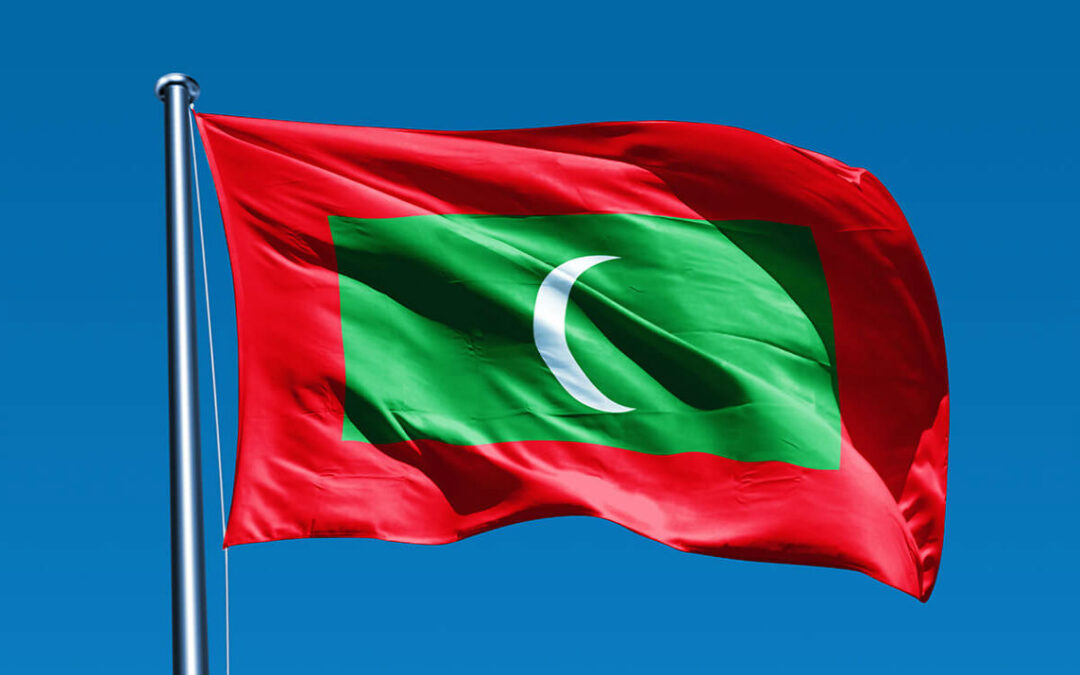
Feb 7, 2018 | News
The judgment yesterday by three Supreme judges of a rump Supreme Court that overturned order of the full Supreme Court to release nine members of opposition political parties lacks legitimacy, the ICJ said today.
On 1 February, the Supreme Court had ordered the release of nine members of the opposition parties, who had been convicted for or charged with a wide range of offences, and held the cases required “retrial and judgments pursuant to the law”.
The petitioners had alleged the criminal proceedings against them were based on “political motivations” and were in violation of the Constitution of the Maldives and its international human rights obligations.
Instead of implementing the judgment, the Government responded by declaring a state of emergency and suspending a range of human rights protections.
On the night of 5 February, the national defense forces and the police forcefully entered the Supreme Court.
The Chief Justice held members of the forces in contempt of court, after which they dragged the Chief Justice out of the Court premises.
The Chief Justice and Justice Ali Hameed were later arrested on charges of corruption and “obstructing administration of law or other government function”.
On 6 February 2018, the remaining three judges of the Supreme Court overturned parts of the 1 February judgment, including the directions to release members of the opposition parties, “in light of the concerns raised by the President.”
“The judgment by three judges on Tuesday, reversing an order by the full court, lacks legitimacy. By unlawfully arresting two members of the Court, including the Chief Justice, the Government has effectively stripped the Supreme Court of all its independence and impartiality,” said Ian Seiderman, ICJ’s Legal and Policy Director.
“The arrest of judges Abdulla Saeed and Justice Ali Hameed for carrying out their proper and legitimate judicial functions would have sent a clear message to the remaining judges that any exercise of independence that was contrary to wishes of the governments would not be tolerated,” Seiderman added.
The ICJ also highlighted that conduct of the remaining judges of the Supreme Court suggests a risk that they themselves could become complicit in ongoing human rights violations.
The ICJ also expressed concern at the health of Justice Ali Hameed, who was taken to the hospital on Tuesday night and is feared to be in critical condition.
His family has reportedly been denied access to him.
The ICJ has also learned that Justice Ali Hameed’s family members have been detained and are being denied access to lawyers.
There are also credible reports that suggest Justice Ali Hameed is being detained in very small cells with poor ventilation that get very hot because of direct sun exposure for prolonged periods – which could be a possible cause of his health condition.
“The detention of judges and their family members and their possible ill-treatment smacks of retribution, which is prohibited under Maldivian and international law,” said Seiderman.
The ICJ urged the Government to immediately lift the state of emergency, release judges of the Supreme Court and all other political prisoners, implement the 1 February ruling of the Supreme Court and ensure the independence of the judiciary.
Contact:
Ian Seiderman, ICJ Legal and Policy Director, e: ian.seiderman(at)icj.org
Reema Omer, ICJ International Legal Adviser for South Asia (London), t: +447889565691; e: reema.omer(at)icj.org
Additional information
Under international standards, including the UN Basic Principles on the Independence of the Judiciary, it is the duty of all governmental and other institutions to respect and observe the independence of the judiciary.
This means that there shall not be any inappropriate or unwarranted interference with the judicial process and judges shall be free to decide cases without any restrictions, pressures, threats or interferences.
Furthermore, international standards provide that all complaints against judges in their judicial and professional capacity shall be processed expeditiously and fairly under an appropriate procedure; they shall have the right to a fair hearing; and they shall be subject to suspension or removal only for reasons of incapacity or behaviour that renders them unfit to discharge their duties.
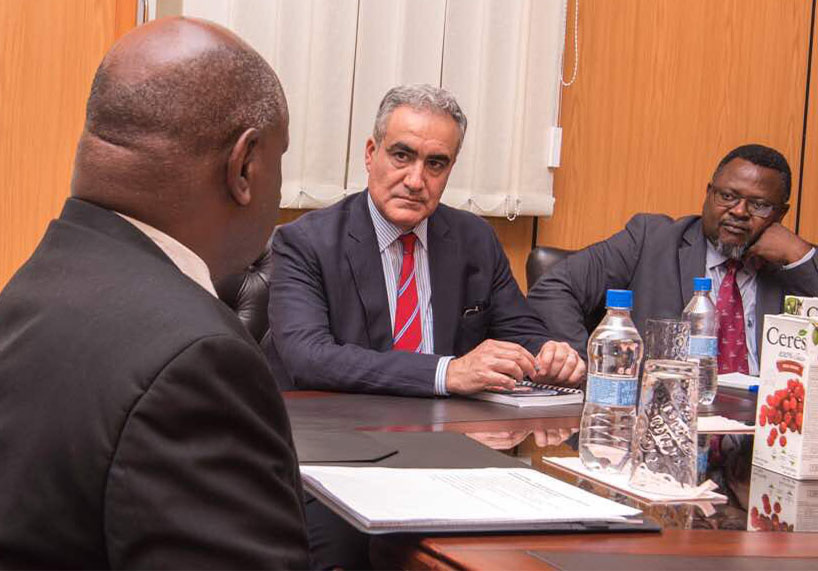
Dec 12, 2017 | News
Zimbabwe’s new government must urgently restore the rule of law and ensure free and fair elections, said the ICJ at the conclusion of a visit by its Secretary General Sam Zarifi to the country.
After the recent military intervention in Zimbabwe that led to the ouster of former President Robert Mugabe, the government headed by Emmerson Mnangagwa is expected to remain in office until new elections, currently scheduled to be held before August 2018.
“The change in leaders in Zimbabwe presents an opportunity to reverse decades of damage to the rule of law and respect for human rights in the country,” said Zarifi, ICJ’s Secretary General.
“As an immediate matter, the new government must take concrete steps that demonstrate it is committed to observing the country’s obligations under international law, as well as the human rights protections of Zimbabwe’s own constitution,” he added.
The ICJ calls on the government of Zimbabwe to:
- ensure free and fair elections are held as scheduled, and the country’s electoral laws comply with the Constitution and international standards;
- accelerate measures to ensure compliance of all relevant laws with the country’s constitution and its international legal obligations;
- ensure the independence of the judiciary and the legal system;
- ensure all those arrested and detained during the military intervention are identified and brought immediately before an independent and impartial tribunal, and, where charged with recognized crimes, are given fair trials;
- investigate all allegations of unlawful deaths, torture or ill-treatment, and arbitrary arrest and detention;
- ensure the military acts within strict legal bounds, operates under civilian control, and does not engage in arrest and detention of civilians;
- ensure all security forces, including the police and the military, are subject to accountability and receive proper and adequate training in performing their duties in conformity with international human rights standards; and
- provide credible mechanisms to combat corruption in all branches of government, and ensure that anti-corruption efforts are not politicized.
“Zimbabwe’s military has played a central role in the country’s affairs for decades, while civilian institutions have suffered under intense political pressure, at great cost to the people of the country,” Zarifi said.
“Zimbabwe should grasp this opportunity to demonstrate that it can and will strengthen the rule of law and respect for human rights in order to improve the lives of all people in the country.”
Contact
Arnold Tsunga, ICJ-Director: Africa Regional Programme, t: +27716405926, e: arnold.tsunga(a)icj.org
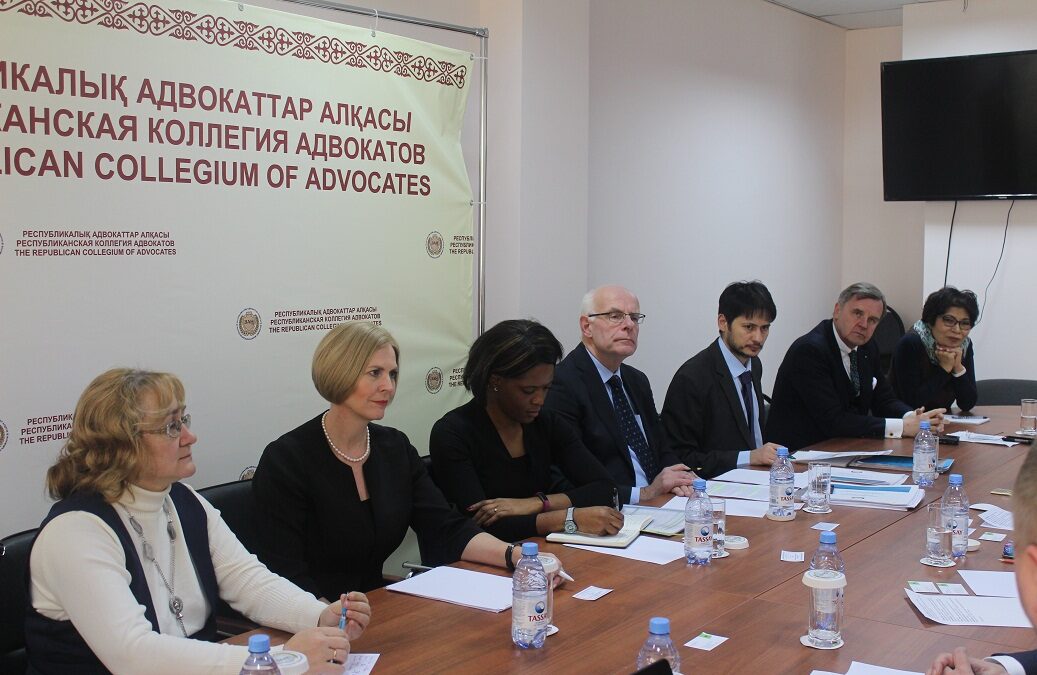
Dec 5, 2017 | News
The ICJ, following a mission to Kazakhstan this week to assess the proposed draft law reforming the regulation of the legal profession, called for the postponement of the adoption of the law and more active participation of the legal profession in its development.
The ICJ stressed that any reform of the legal profession should strengthen the independence of lawyers to ensure that it is fully in line with international law and standards on the role of lawyers.
The independence of the legal profession is vital for lawyers to protect the human rights of their clients, including the right to a fair trial and access to justice.
The ICJ is concerned that the Draft Law changes the disciplinary system for lawyers from an independent procedure to one under significant influence of the executive.
In particular, the Draft Law provides for participation of representatives of the executive in disciplinary bodies.
The ICJ recalls that an independent disciplinary procedure is one of the pillars of an independent legal profession and should be guaranteed by law and in practice.
In line with the principle of an independent legal profession, the ICJ also believes that the provision in the Draft Law allowing for the creation of a “State Advokartura” should be removed.
One of the weaknesses of the current administration of the legal profession in Kazakhstan is that the qualification process for lawyers is not independent of the executive.
The ICJ stresses that the reform creates an opportunity to make the qualification procedure for lawyers fully independent, and administered by the Bar Association.
This would bring the current legislation in line with best international practices and with the principle of the independence of the legal profession.
The ICJ has noted that the Bar Association has not been sufficiently involved in the discussion of the reform of the profession. As a professional association of lawyers, the Bar Association should play a significant role the development of the legislation regulating its functioning and should ideally lead the discussion on the reform.
The ICJ believes that the adoption of the law should not be rushed and further discussion among all interested parties should take place before the Draft Law progresses further.
Reforms along the lines set out above would be consistent with Kazakhstan’s international obligations and commitments under, for instance, the International Covenant on Civil and Political Rights, and the UN Basic Principles on the Role of Lawyers.
Background
On 4 and 5 December, the ICJ carried out a visit to Astana where a number of high-level meetings were held. The visit was prompted by the reform of the legal profession and the related draft law which has been submitted to the Parliament.
The ICJ is grateful to its delegates from different jurisdictions who agreed to join the ICJ mission:
Mr. Otmar Kury, President of the Hamburg Bar Association, Chairman of the Commission on Federal Lawyers Act of the German Federal Bar
Jeroen Browder, President of the Ethics Commission of the Bar Association of the Netherlands and former President of the Bar Association of the Netherlands
Georg Stawa, President of the European Commission for the Effectiveness of Justice (CEPEJ)
Christina Blacklaws, Vice President of the Law Society of England and Wales
Chika Muorah, International Policy Adviser of the Law Society of England and Wales
The ICJ expresses its gratitude to all who kindly agreed to meet with it. In particular, the Mission thanks the Minister of Justice of Kazakhstan, the Supreme Court, members of the Parliament, the President of the Republican Bar Association, the “Kazbar” NGO and all others who it met with.
Kazakhstan-News-Web stories-Independence of the judiciary-2017-ENG (full report, in English)
Kazakhstan-MissionLawyers-News-pressreleases-2017-RUS (full story in Russian, PDF)
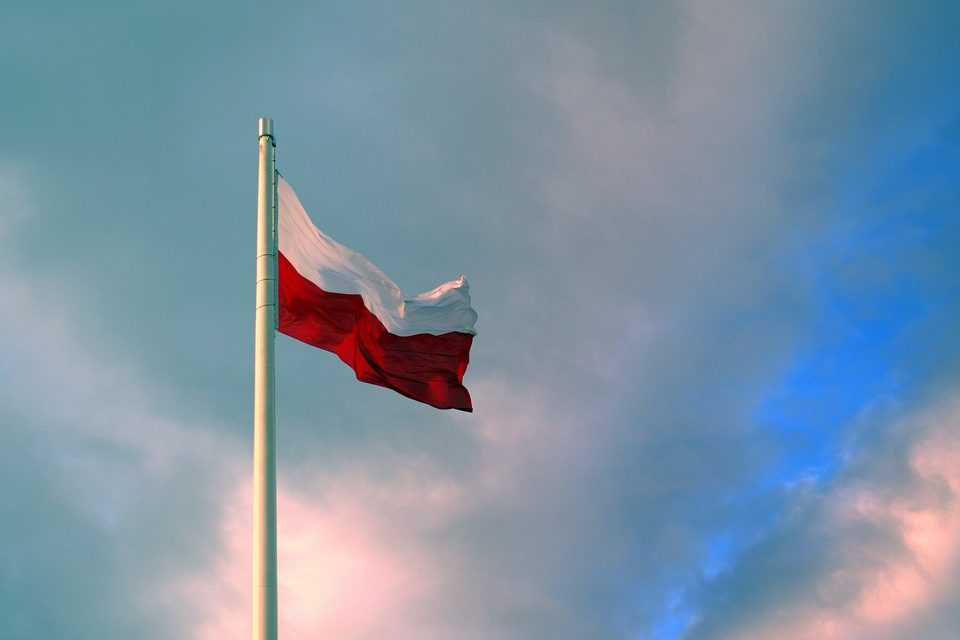
Dec 4, 2017 | News
The ICJ called today on the Polish Parliament (Sejm) to reject two draft laws that, if approved, would significantly undermine the independence of the judiciary.
The Sejm is reportedly set to approve tomorrow draft bill no. 2002 that, among other measures, will allow Parliament and the Government to appoint a majority of the members of the National Judicial Council, the institution in charge of defending the independence of the judiciary and appointing judges.
This law gives the Polish legislature and executive, which have increasingly demonstrated deep disregard for human rights and the rule of law, undue influence over the judiciary.
Additionally, draft bill no. 2003, which will also come before the Parliament for approval, will lower the age of retirement for Supreme Court judges from 70 to 65 years and allow the President of the Republic to decide which judges are to be reinstated.
“These draft laws tabled by President Duda are a direct blow to the principle of separation of powers, the bedrock of the rule of law,” said Massimo Frigo, Senior Legal Adviser with the ICJ Europe Programme. “The changes made to the draft laws rejected by the President last July have not remedied in any way their adverse implications for judicial independence”.
In July, President Andrzej Duda vetoed two draft laws approved by Parliament that would have automatically dismissed all judges of the Supreme Court and entrusted the Minister of Justice with any decision on their reappointment.
The provision on the appointment of the members of the National Judicial Council was also included in the draft laws rejected in July and has changed only with regard to the parliamentary majority needed for such appointments.
“These series of legislative attacks on the independence of the judiciary in Poland must stop. These actions are inconsistent with the international obligations of Poland to ensure the independence of judges,” said Massimo Frigo.
“If these laws are approved and enter into force, this will be a decisive blow to the rule of law in Poland. A EU Member State that directly undermines the checks and balances of its own legal system threatens the founding values of the EU of the rule of law and respect for human rights, and makes it essential that the EU intervene through its article 7 procedure.” he added.
An article 7 procedure can lead to a State losing its voting rights within the EU decision-making processes. It is triggered by the European institutions, or one third of Member States, when they consider that there is a “clear risk of a serious breach by a Member State” of EU values, among which the rule of law and human rights. It is the European Council that then decides on the exclusion, if it determines that the breach of these values is “serious and persistent”.
Contact
Massimo Frigo, ICJ Senior Legal Adviser, t: +41 22 979 3805 ; e: massimo.frigo(a)icj.org
Poland-Draft law judiciary-News-Press releases-2017-ENG (full text in PDF)
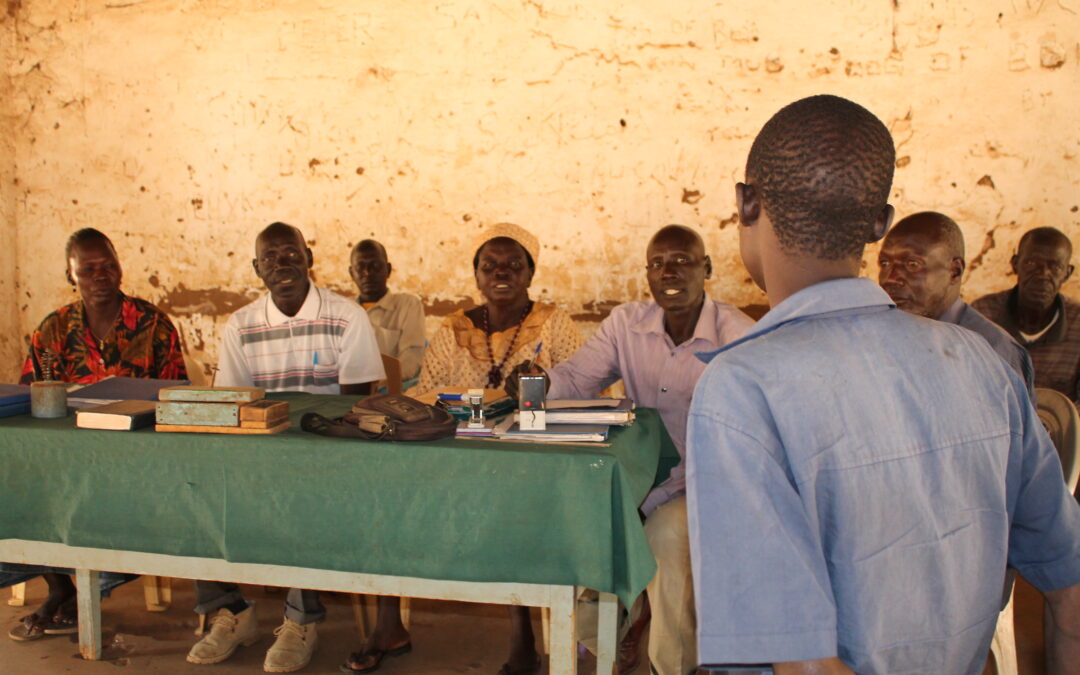
Nov 23, 2017 | Events, News
The 8th Geneva Forum brought together judges, lawyers, and other legal experts from around the world, and relevant UN representatives, to discuss the relationship between traditional and customary justice systems and international human rights, access to justice, and the rule of law.
The potential for improving access to justice
In many countries the majority of legal disputes, especially in rural areas, are resolved by traditional and customary justice systems that are not necessarily recognised by national law as a part of the official court system. The role of traditional and customary justice systems is therefore a key question for realization of “access to justice for all” and “effective, accountable and inclusive institutions” under Sustainable Development Goal 16.
Traditional and customary justice systems are often more practically and culturally accessible to local populations than is the official court system, and may be seen by local people as having greater legitimacy as well. Indeed, official recognition of the existence of traditional and customary courts in a country can be a positive reflection of the international human rights of ethnic, religious or linguistic minorities, or the particular rights of indigenous peoples, or cultural rights more generally.
For marginalized and disadvantaged rural populations in developing countries, traditional and customary courts may in practical terms be the only form of access they have to any kind of justice. Development agencies have increased their engagement with informal justice systems, and are considering much greater investment in capacity-building of such systems, noting their potential to reach large portions of the population who face significant obstacles to realizing access to justice in the official justice system.
The risks for human rights, particularly of women and children
At the same time, the composition, procedures, and outcomes of traditional and customary justice system mechanisms and processes can conflict with the human rights protections contained in international law and standards on human rights and the rule of law.
One key concern is in relation to the rights of women and children. Traditional and customary justice systems may be rooted in patriarchal systems and, as such, can reinforce harmful gender stereotypes and cultural assumptions that are inherently likely to discriminate against women and children and therefore negatively impact upon their rights.
Other concerns include consistency with the right to a competent, independent and impartial tribunal established by law; respect for fundamental guarantees of fairness comprising the right to fair trial; accountability of judicial decision-makers in relation to corruption and other misconduct; and non-discrimination and equality before the law more generally.
Aims of the 2017 Geneva Forum
The discussions at the 2017 Geneva Forum (22-23 November 2017), together with ICJ’s broader global experience and expertise, will provide a foundation for the development by ICJ of legal, policy and practical guidance, including conclusions and recommendations on the role of traditional and customary courts in relation to access to justice, human rights and the rule of law.
The ICJ guidance will take into account the many variations and differences between different traditional and customary courts that exist around the world, while seeking to articulate conclusions and recommendations sufficiently universal to be applicable across the widest possible range of contexts. The focus of the Geneva Forum and the ICJ guidance is intended to be on traditional and customary courts of an informal character and, as such, the ICJ does not intend directly to address formal religious courts or the application of customary law by ordinary formal courts.
Available for download in PDF format:
Compilation of selected international sources on indigenous and other traditional or customary justice sytems, available here.
Final report of the 2017 Geneva Forum on traditional and customary justice systems, available here:
Universal-Trad Custom Justice Gva Forum-Publications-Thematic reports-2018-ENG
Several video interviews with participants are available to view by clicking here.
Information about the subsequent 2018 Geneva Forum on indigenous and other traditional or customary justice systems in Asia, is available here.
For more information, please contact matt.pollard(a)icj.org.
The 2017 Geneva Forum of Judges & Lawyers was made possible with the support of the Republic and Canton of Geneva, Switzerland.
- Photo: “Traditional leaders preside over a case in B-Court, Nyang Payam, Torit County, South Sudan”
- Photo Credit: UNDP South Sudan2016Angelique Reid ©2016 United Nations









